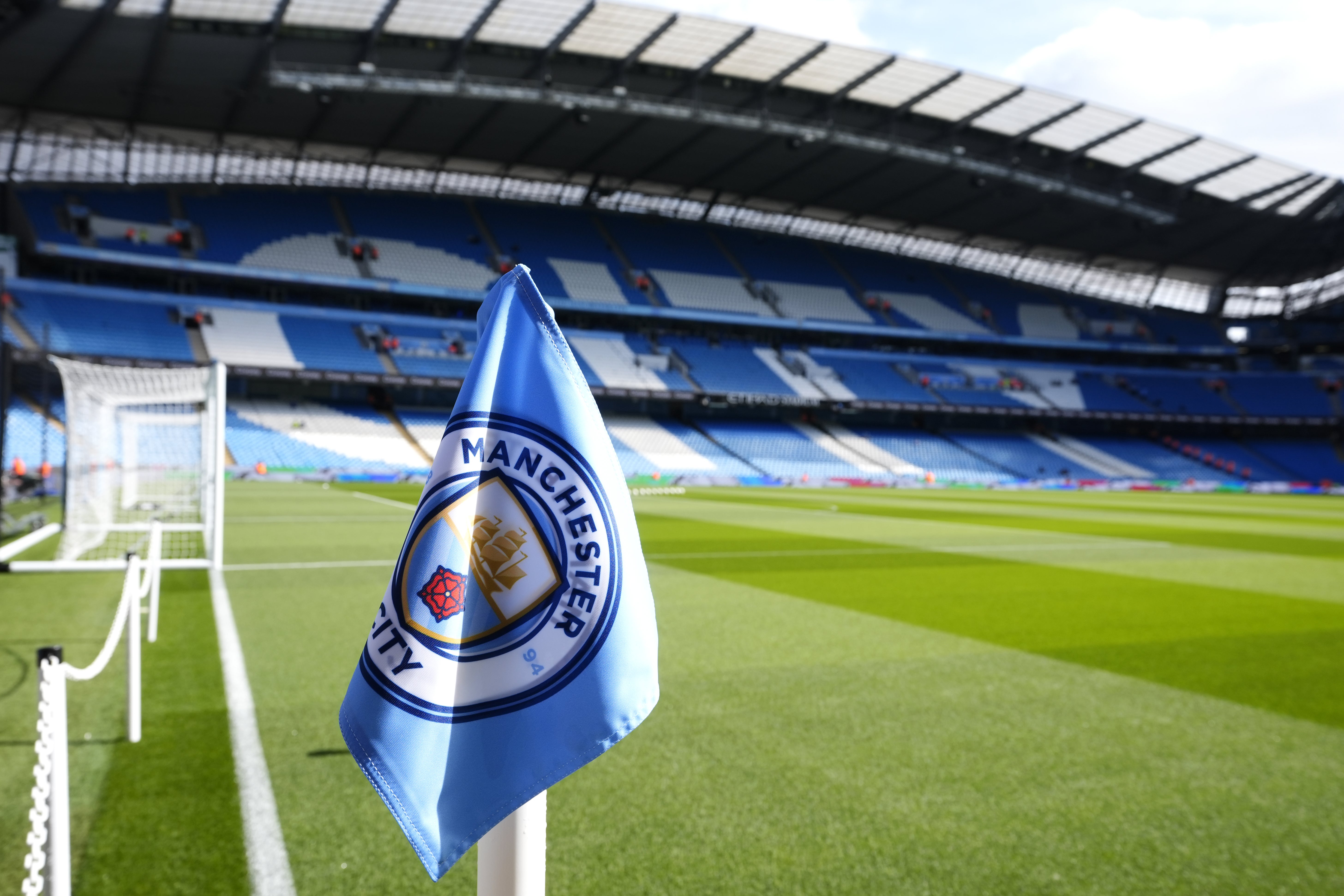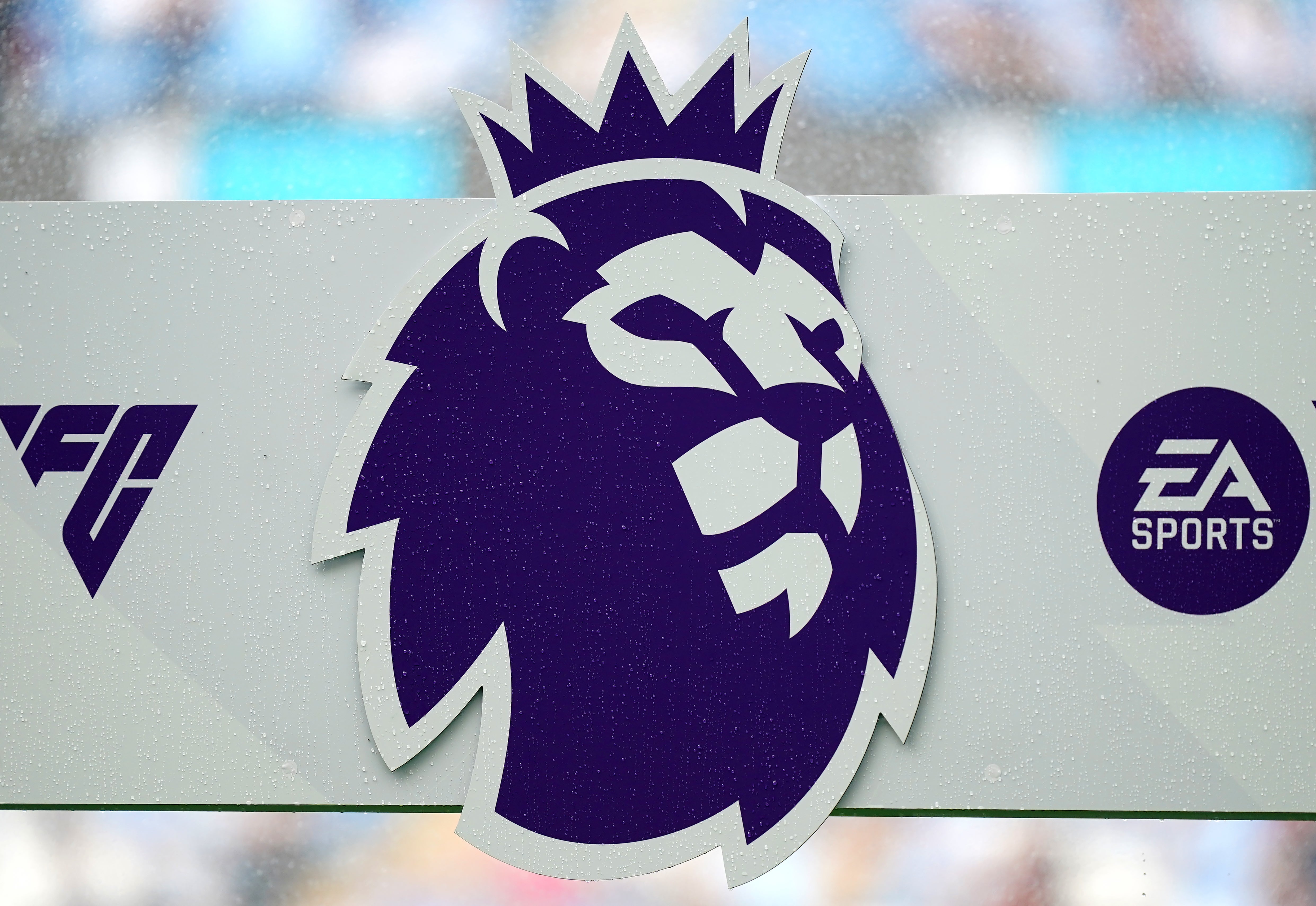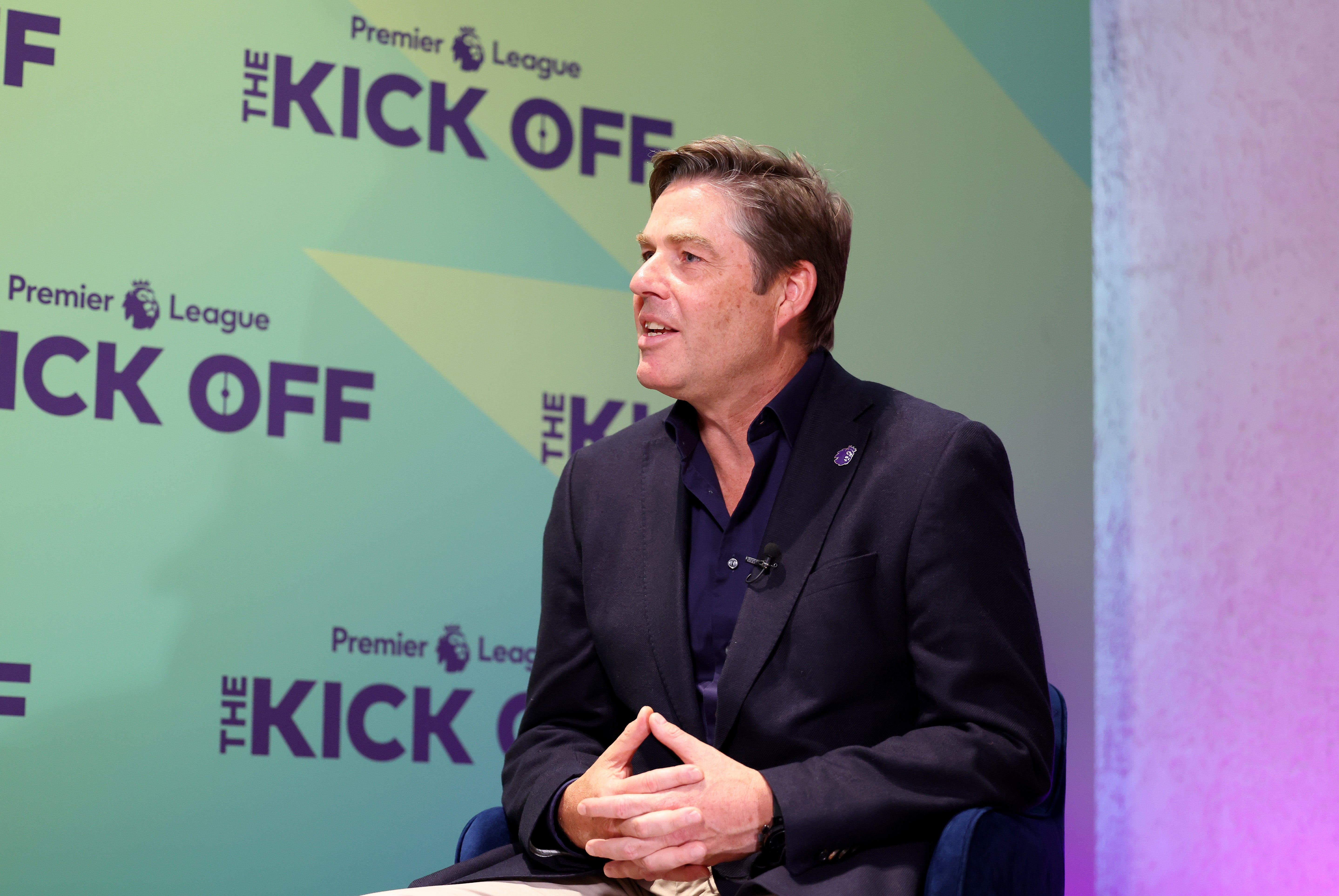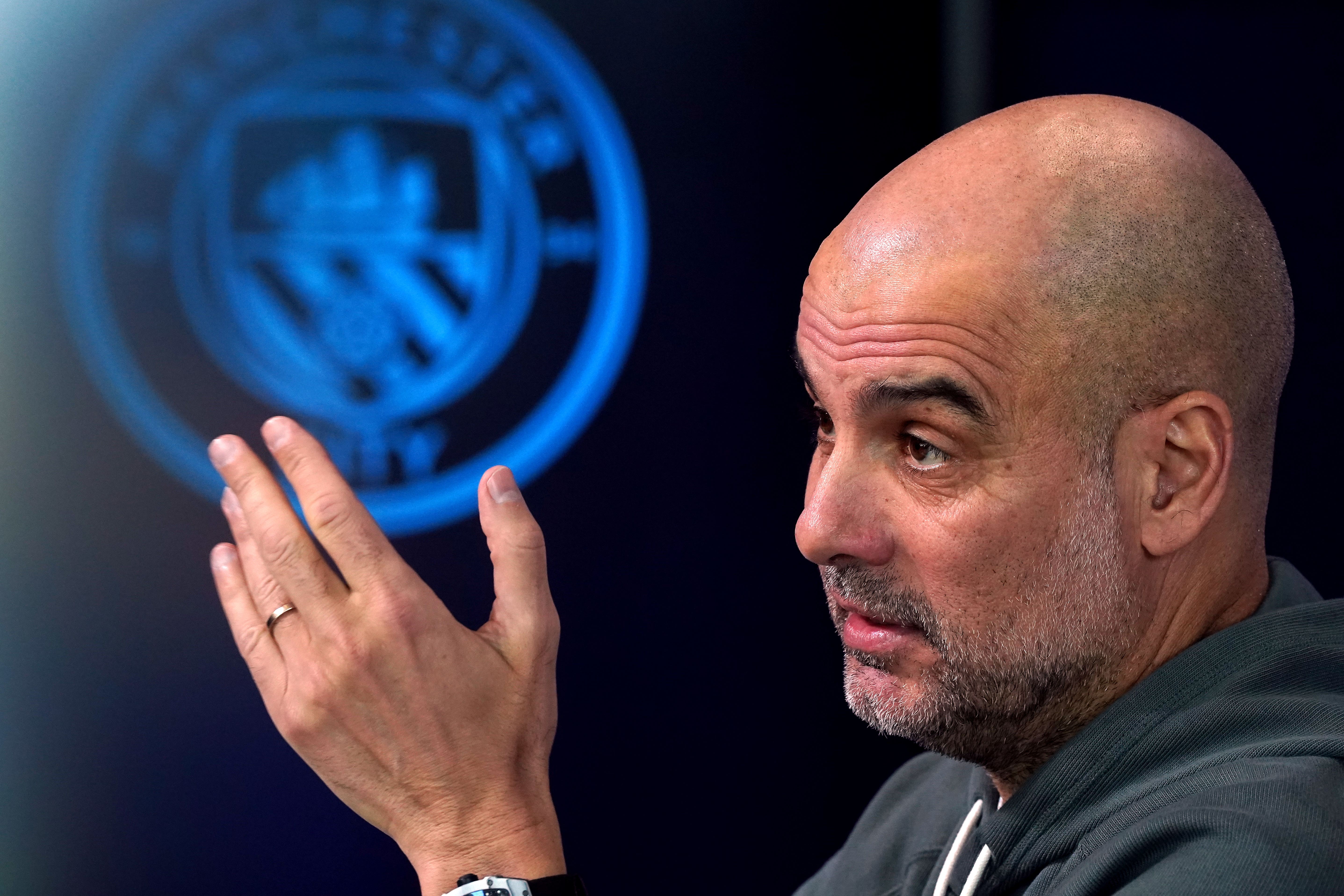The ‘huge problem’ facing the Premier League amid Man City crisis
The Premier League is facing unintended consequences from Man City’s legal battle with Miguel Delaney detailing how the situation has led to a worse atmosphere than the Super League threat
Your support helps us to tell the story
From reproductive rights to climate change to Big Tech, The Independent is on the ground when the story is developing. Whether it's investigating the financials of Elon Musk's pro-Trump PAC or producing our latest documentary, 'The A Word', which shines a light on the American women fighting for reproductive rights, we know how important it is to parse out the facts from the messaging.
At such a critical moment in US history, we need reporters on the ground. Your donation allows us to keep sending journalists to speak to both sides of the story.
The Independent is trusted by Americans across the entire political spectrum. And unlike many other quality news outlets, we choose not to lock Americans out of our reporting and analysis with paywalls. We believe quality journalism should be available to everyone, paid for by those who can afford it.
Your support makes all the difference.Premier League club executives fear the competition’s governance could effectively go into stasis, with one source describing Manchester City’s ongoing legal action as a “war”.
Aside from the temporary state of limbo from the wait to amend the Associated Party Transaction [APT] rules after Monday’s announcement, there are concerns that more fault lines have been widened around several other issues in the competition.
Some believe that could bring more abstentions for ballots on any major decisions, partly through uncertainty. There were already splits on the evolution of Profit and Sustainability Rules to squad cost ratios. That has translated into concern there will be “huge problems getting anything voted through,” one source tells the Independent. The relative simplicity of the Premier League’s decision-making - where a majority of 14 of 20 is required - may start to encounter significant complications.
Much will be revealed by next Thursday’s emergency meeting to discuss potential amendments to APT rules, but the atmosphere is currently the worst it’s ever been. It has gone beyond the Super League, because there aren’t the same wider feelings of righteousness on one side and contrition on the other.
It is so deep that one source maintains a word to summarise the situation is “ungovernable”. That’s especially problematic when Labour are meeting clubs this week about the independent regulator. Another word being used is “untenable”.
Executives within some clubs are now openly wondering over whether it is really possible to sustain this ostensible “partnership” with City - since all teams are simply members of a club - due to the strength of feeling.
Monday night’s email from the champions’ general counsel Simon Cliff was read as a severe escalation. Suggestions that clubs should go straight to them to discuss the consequences of the judgment were accompanied by threats of further legal action. The latter was what most struck the clubs, and fired the greatest source of fury. One senior figure just laughed, astounded at the brazenness of it all.
The champions do still have their supporters, although some of those are concerned about what Monday’s judgement might now mean for them. In other words, self-interest, another dominant storyline in the modern Premier League. City themselves were said to be “seething” about the fall-out, one source tells the Independent, but stridently assertive in their response.

“They’re always like that,” was the response from an official. Many pointed to how it was purportedly Cliff’s email that appeared in Football Leaks and quoted chairman Khaldoon Al Mubarak saying “he would rather spend £30m on the 50 best lawyers in the world to sue them for the next 10 years” as well as how Uefa had the choice “to avoid the destruction of their rules and organisation”.
Some have commented about how familiar that sounds, especially with the Premier League hearing hanging over all of this.
It is why there has been mirth about the idea that City are acting in the wider interest of the game. More executives are currently calling for expulsion if City are found guilty of the most serious charges in the hearing, and it probably indicates the strength of feeling that people have even speculatively wondered what it would take for the club to be kicked out of this members’ group now. Such suggestions aren’t being pursued seriously, not least because it would not survive an antitrust claim. While some point to rule B6 requiring just a 75% vote, City could argue it would not just be a shareholder issue and would represent an unjustified market exclusion.

Above all, though, there is simply exasperation at the manner that the club have gone against the very idea of the Premier League. Rivals are furious that City’s owners bought into the competition in the knowledge of what it was, aware of the rules, and the idea that everyone ultimately abides by the founding members’ agreement: to accept the result of votes.
City are instead the first to take a case of this nature, and decide that they don’t need the rules to apply to them.
This is why this entire episode is seen as a crossing of the rubicon; the pressing of the button…whatever ‘point of no return’ you like.
City’s move has created a new precedent for legal action in the Premier League, in a way that clubs would previously have done anything to avoid due to the possibility of mutually assured destruction. Legal action tends to be so disruptive that it can create irreconcilable differences that damage the football. The wonder is what next. Would some clubs follow through on previously impotent talk of suing the PGMOL?
It’s a new world, if a natural progression from the current world, which is already filled with lawyers. It says much that the number of barristers on the APT case was 13, whereas the one that started the Premier League - the Football Association v the Football League - had just four, with Lord Pannick acting as the Football League's Junior.

The competition was still characterised by angry disagreements after that, particularly around commercial deals, but clubs implicitly agreed to leave disagreements in the boardroom. That was because of the understanding they were all here for the primary business, which was putting on attractive matches. That accompanied the general feeling that any bad feeling would fade once football was played - but that isn’t happening now.
Others would stress how the entire issue is compounded by a perceived sloppiness within the Premier League on process, and that of course City should challenge rules that are unlawful and appear to target them. Just like that very judgment, it is more complex than that.
For one, they failed on most challenges and won victories on technicalities. The manner in which the club did a U-turn on shareholder loans also reinforces a perception they were simply attempting to throw anything at the Premier League.
Two, there has never previously been an expectation that sporting regulations must be as legally watertight as state laws. That’s because they aren’t states. They are just sports. Regulations were by definition much looser, because they only needed to be fit to stage mere games. There was again an implicit acknowledgment not to go looking for loopholes because that would disrupt the main purpose of playing sport.
That naturally changes when you have entities looking at this from state perspectives, as well as state means. It is here that the Premier League - and football as a whole - is facing up to problems that have really been a long time coming. The entire issue is a direct consequence of football greedily letting in so many non-football interests, and particularly the lack of foresight about state ownership. While the latter is far from the only major issue in modern football, this whole episode displays why it is the most serious.

The amendments to APT rules only arose because of the unique challenges surrounding state ownership, given the blurring of lines within autocratic structures. It then only escalated due to the will and means of state ownership.
This is a crisis the Premier League was always going to face, a manifestation of multiple growing issues. Problems like this were inevitable, and are now almost insoluble.
This isn’t to say it would have been much better if ownership had stopped at the biggest capitalists. There just would have been another range of problems there, right down to certain groups of interests being able to form voting blocs of 14. That idea may soon become a distant memory.



Join our commenting forum
Join thought-provoking conversations, follow other Independent readers and see their replies
0Comments